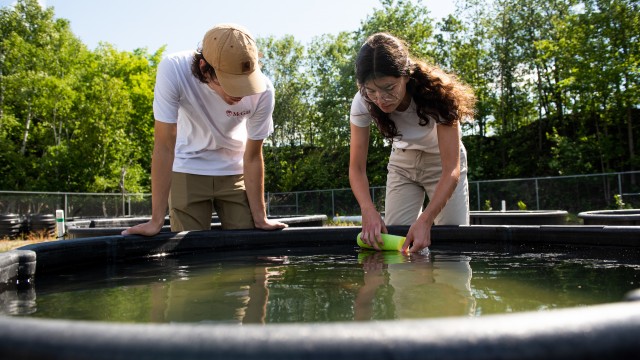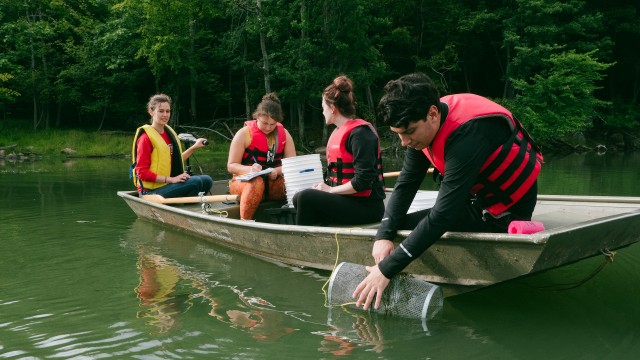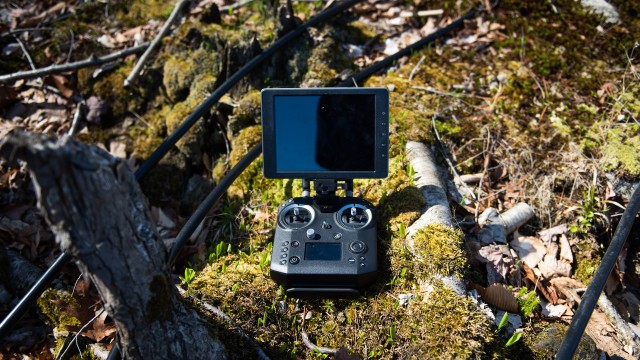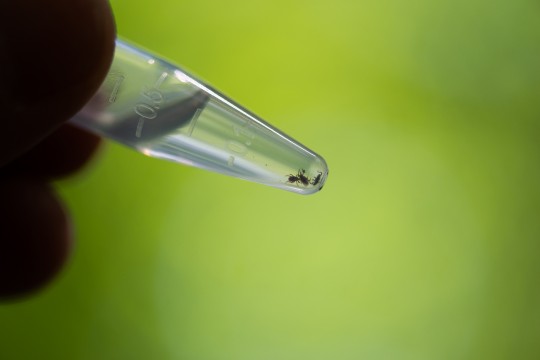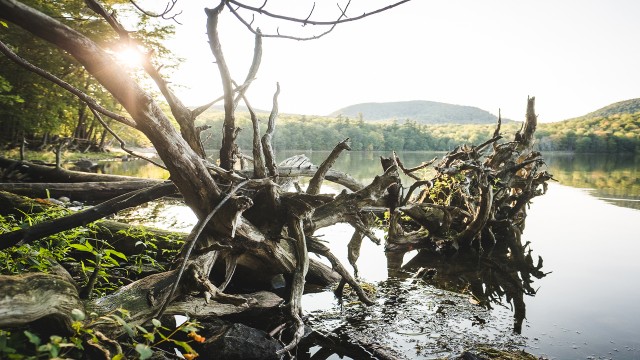The Large Experimental Array of Ponds (LEAP)! Emma Derrick and Maxime Guglielmetti, recipients of the 2022 Gault Research Awards, have been using ponds at LEAP to study how bacterioplankton evolve in the presence of herbicides. Bacterioplankton are tiny bacteria that live in aquatic environments and float freely in the water column. They are essential for the health and functioning of aquatic ecosystems and are often used as an indicator of water quality.
Controlling the movement of such tiny organisms comes with challenges, however, which the researchers met head-on with creativity. Pictured here, Emma holds a semi-permeable device that allows small molecules to pass through but is designed to prevent the movement of bacteria in or out of the bag. The device is created with none other than dialysis tubing! To keep it at the proper depth in the water, the researchers anchored it to the floor with a brick and the top floats with the help of a pool noodle.
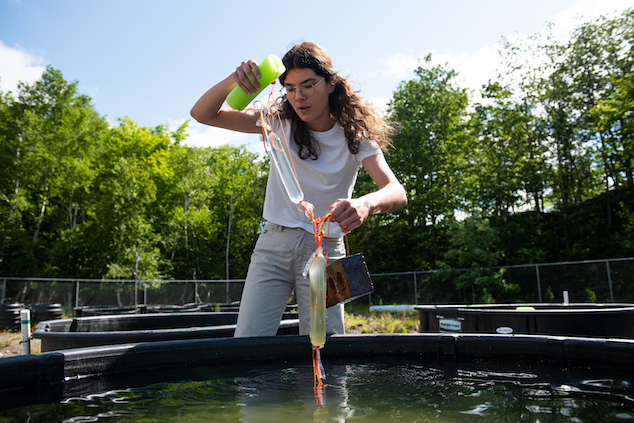
Emma Derrick lifts the experimental device out of a pond without herbicide (photo: Alex Tran)
“We decided to use the bags so we could [insert the] bacteria into the bag and reisolate it throughout the experiment. If we had just added the bacteria directly to the pond we likely would not have been able to isolate it again” explains Emma. “We used the bags to study how our bacteria (Pseudomonas fluorescens) evolves in response to glyphosate-based herbicides when in isolation from the natural bacterial community or in direct contact with other bacteria. This research project will provide insight into the downstream consequences of herbicide runoff, which is relevant because many freshwater bodies are close to agricultural land.
About the researchers
Emma Derrick is a doctorate student supervised by Dr. Jesse Shapiro, an associate professor in the McGill Department of Microbiology and Immunology. Emma grew up in Ontario before moving to Montréal for her studies. Outside of research, she enjoys hiking, running, biking, and cross-country skiing.
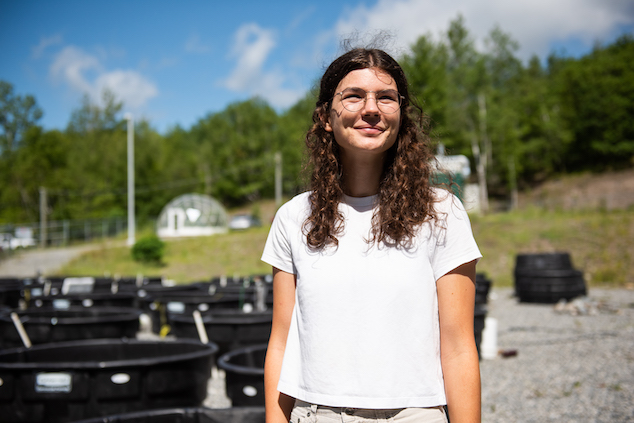
Emma Derrick at LEAP (photo: Alex Tran)
Maxime Guglielmetti is a fourth-year undergraduate Biology student supervised by Dr. Rowan Barrett, associate professor at the Redpath Museum and the Department of Biology at McGill. Maxime was born in France and grew up in California. He hopes to continue researching ways to better protect our planet’s ecosystems by pursuing graduate studies in ecology. Besides biology, Maxime is passionate about the visual arts and spends his spare time drawing and learning new techniques.
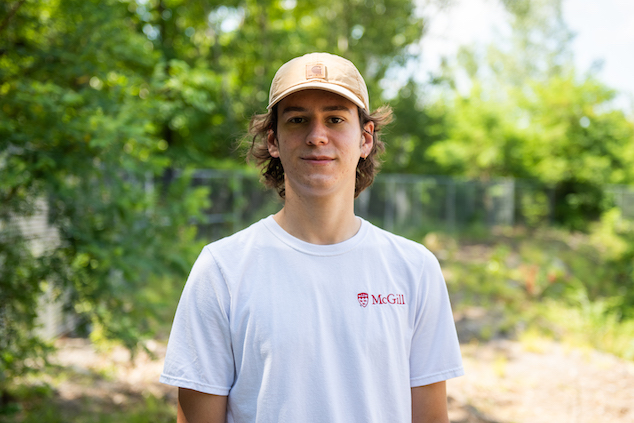
Maxime Guglielmetti at LEAP (photo: Alex Tran)
Frédérique Truchon
Communicatons Associate
Gault Nature Reserve of McGill University
Header: Maxime (left) and Emma (right) inspect one of their experimental ponds (photo: Alex Tran)
